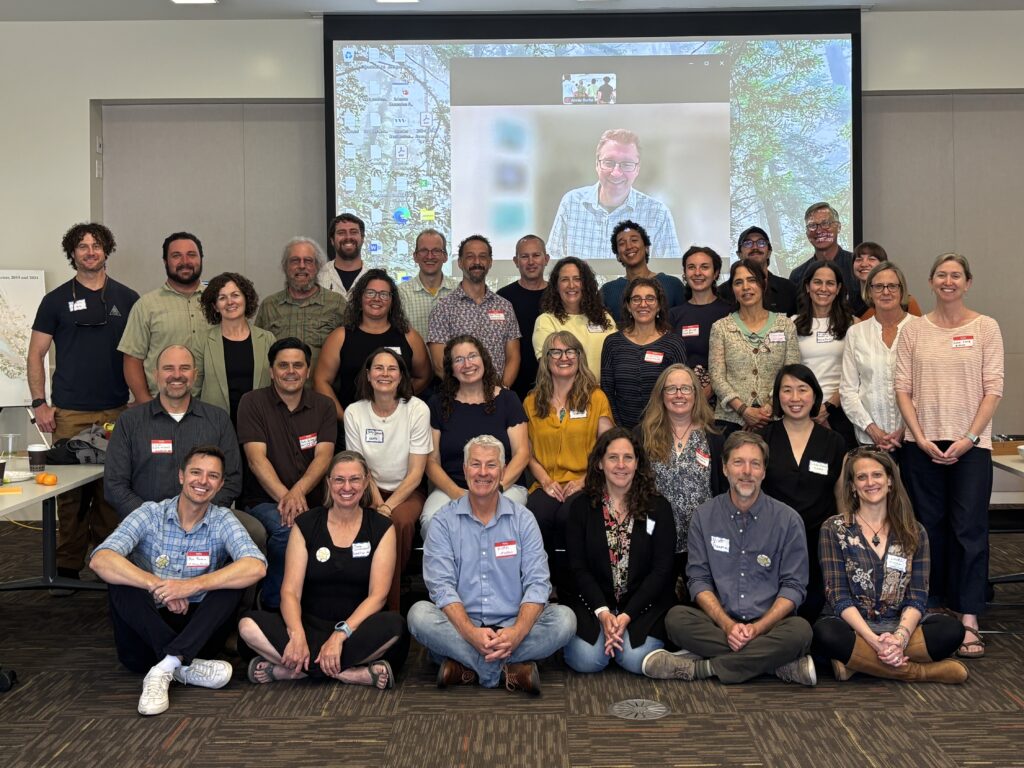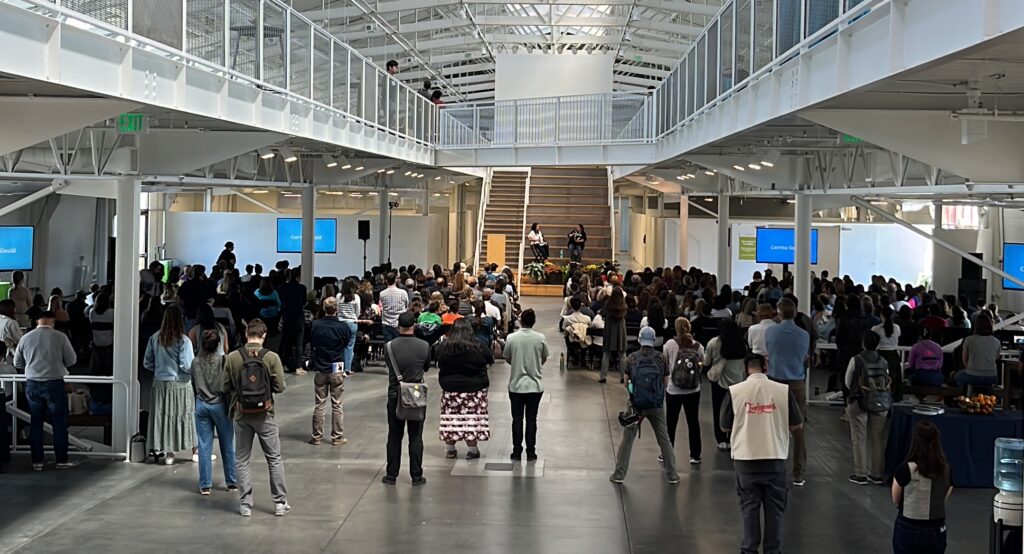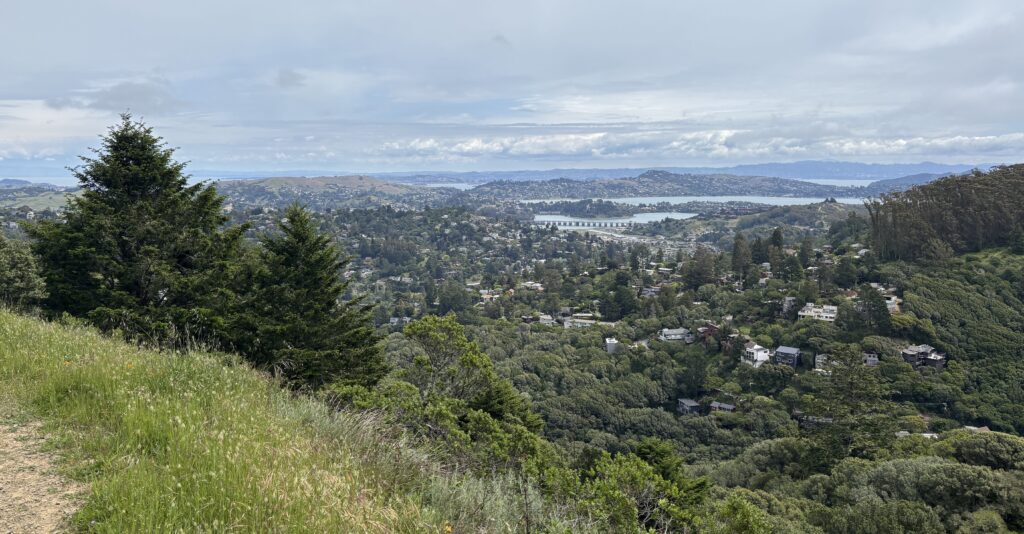Coordination of a Regional Biodiversity Conservation Strategy
Our goal is to facilitate the conservation of 50% of the Bay Area’s lands by 2050 by collaboratively setting regional goals that support local conservation and help achieve state-level strategies.
Connecting Urban Biodiversity
News
Kicking off the CLN 3.0 Steering Committee!
Upcoming Events
Contact
Tom Robinson, Director of Conservation Strategy
Sonia Morris, Conservation Strategy Coordinator
Conservation Lands Network
The Conservation Lands Network (CLN) is a regional strategy that sets goals, tracks progress, provides tools, and catalyzes on-the-ground land conservation in the San Francisco Bay Area. The CLN articulates two types of science-based and community-driven goals: a set of five overarching regional conservation goals and a much larger set of habitat-specific goals.
Regional Conservation Goals
Through a peer-reviewed, science-based process, over 100 scientists, researchers, and land conservation practitioners identified regional goals for the conservation of biodiversity habitats.
The Conservation Lands Network 2.0 project, which was released in 2019, identified five regional goals:

Conserve 2.5 million acres of priority lands by the year 2050. 2.5 million acres is approximately 50% of Bay Area land

Conserve rare, diverse, and irreplaceable landscapes, and manage them for health and resilience.

Conserve core habitats and the lands that connect them, and manage them for permeability, health, and resilience.

Conserve a regional network of streams, wetlands, ponds, seeps, and associated riparian and upland areas, and manage for health and resilience.

Steward all lands to maintain ecological and hydrological processes that support ecosystem function and resilience.
The CLN project includes tools to catalyze on-the-ground conservation. These tools aim to focus conservation in areas that represent the region’s biodiversity and support ecological function across the nearly 5 million acres that comprise the 10 Bay Area counties. Explore the tools >
CLN 3.0 Project
In 2025, with support from the State Coastal Conservancy, TOGETHER Bay Area is launching a mulit-year effort to update and expand the Conservation Lands Network with version 3.0. Our goals include:
- Through an inclusive process with the CLN community, produce CLN tools and deliverables including maps, data, online Explorer tool, and a written report.
- Engage experts to determine if/how there are meaningful and useful ways to incorporate wildfire, urban areas, stewardship, and agricultural lands into the CLN’s tools and deliverables that help advance 50×50.
- Identify ways to integrate the CLN with other TOGETHER programs including advocacy for regional funding and building alliances with Native American Tribes and communities.
CLN 3.0 Steering Committee
The Steering Committee provides oversight on all aspects of the project, including ensuring the scientific integrity of the project, providing guidance on what new data should be included and interpreted, involving key stakeholders, and developing final recommendations.
- Allison Schichtel, Sonoma County Ag & Open Space
- Anna Weinstein, Solano Land Trust
- Becky Bremser, East Bay Regional Park District
- Ben Botkin, San Francisco Estuary Partnership/MTC
- Ben Teton, Santa Clara Valley HCP
- Carrie Schloss, The Nature Conservancy
- Dan Rademacher, GreenInfo Network
- Dina Robertson, East Bay Regional Park District
- Emily Corwin, San Francisco Estuary Institute
- James Wilson, John Muir Land Trust
- Jessica Davenport, State Coastal Conservancy
- Joe Issel, San Mateo RCD
- Kellyx Nelson, San Mateo RCD
- Kirk Lennington, Midpeninsula Regional Open Space District
- Kyle Pinjuv, Sonoma Land Trust
- Laura McLendon, Sempervirens Fund
- Lena Pollastro, Land Trust of Napa County
- Linda Kwong, Santa Clara Valley Open Space Authority
- Lisa Lomba, John Muir Land Trust
- Lisa Lurie, Santa Cruz County RCD
- Mark Bibbo, Land Trust of Santa Cruz County
- Mark Kalnins, State Coastal Conservancy
- Matt Freeman, Matt Freeman Consulting
- Matt Gerhart, Northern Virginia Conservation Trust
- Mischon Martin, Marin County Parks
- Nancy Schaefer, California Rangeland Trust
- Neoma Lavelle, East Bay Regional Park District
- Peter Cowan, Peninsula Open Space Trust
- Rebecca Johnson, California Academy of Sciences
- Robin Grossinger, Second Nature Ecology and Design
- Sara Press, Save the Redwoods League
- Stu Weiss, Creekside Center
- Tom Gardali, Audubon Canyon Ranch
- Tosha Comendant, Land Trust of Napa County
- Tristen Brenner, Marin Agricultural Land Trust
Science Advisors
- Cesar Estien, PhD, Second Nature Ecology + Design
- Erica Spotswood, PhD, Second Nature Ecology + Design
- Stu Weiss, PhD, Creekside Center for Earth Observation
- Liat Wilde, MA, Point Blue Conservation Science
CLN 2.0 Progress Report
CLN 2.0 Progress Report measures progress on the five regional goals since the CLN community set them in 2019. This report reflects the work of local conservation organizations who have worked tirelessly to conserve new lands. It contains scientific analysis and interconnections to state goals and regional planning processes. Read the report >
News
Kicking off the CLN 3.0 Steering Committee!
Conversation about Stewardship
Calling all GIS data compilers!
Connecting Urban Biodiversity
In 2022, we launched an exploration that incorporates community science through iNaturalist, and conservation science through the Conservation Lands Network. This project is a collaboration between TOGETHER Bay Area and the California Academy of Sciences, with funding from the State Coastal Conservancy.
This project:
- Leveraged professional and community science
- Connected biodiversity and social equity in conservation planning
- Illuminated baylands and uplands interdependencies
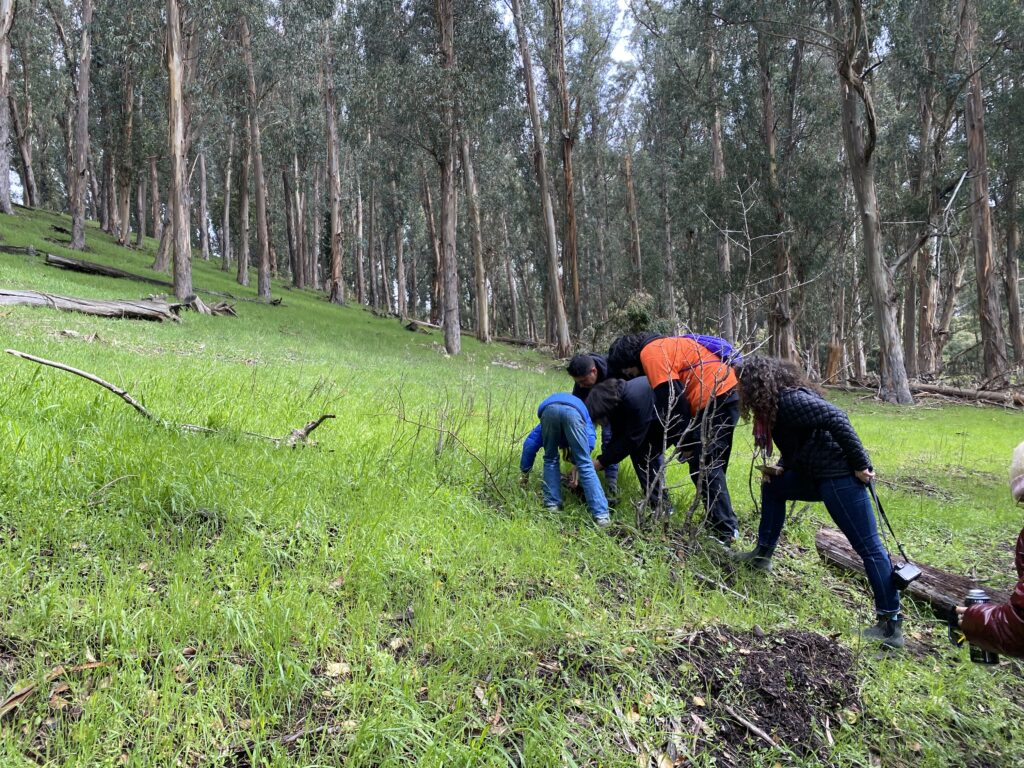
Advancing 30×30 and Other State Goals
We need to accelerate our collective efforts to address the climate crisis, and TOGETHER Bay Area members are positioned to deliver nature-based and equity-centered solutions. TOGETHER Bay Area members are working on local projects that can advance the State of California’s goals as outlined in Pathways to 30×30 and other plans.
In the winter of 2022, we surveyed our member organizations and they shared over 110 projects that are ready to implement and which meet the objectives of the Pathways to 30×30 Strategy. Learn more >
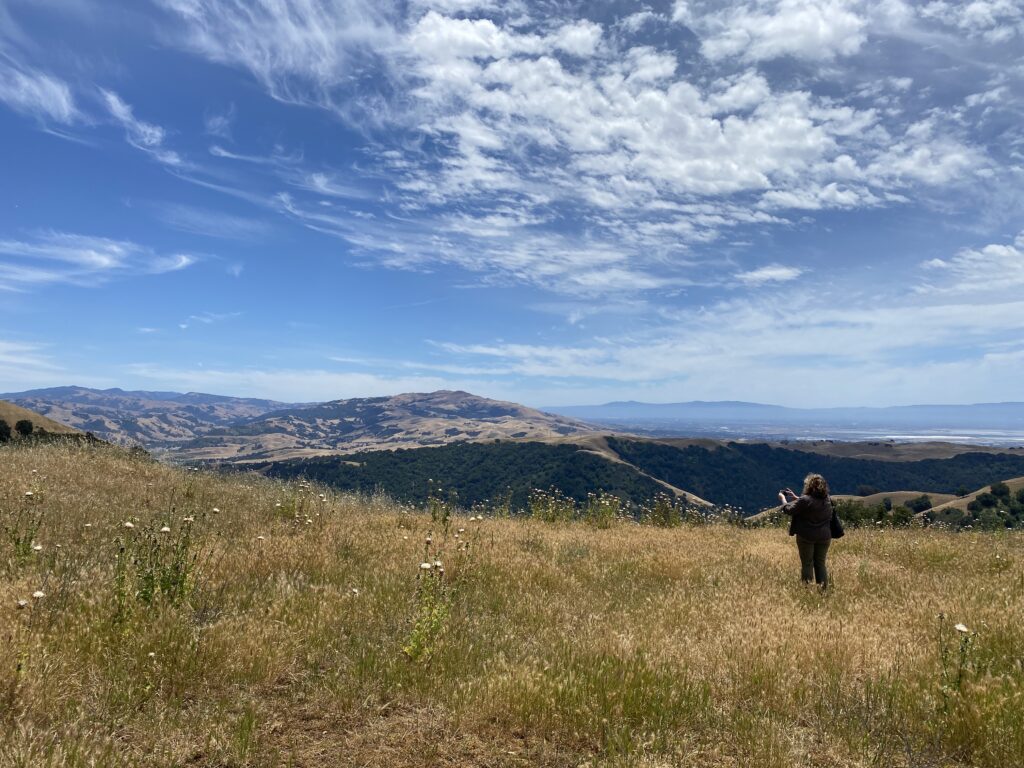
Wildfire Data Working Group
As hundreds of thousands of acres of the Bay Area have burned recently in wildfires, our members are in a constant cycle of research and innovation as we learn to live with fire on the landscape. Collecting and analyzing data to support this paradigm shift is key. The Wildfire Data Working Group (WDWG) is focused on regional coordination of data collected before, during, and after wildfires for informed decision making by land management organizations and agencies. TOGETHER Bay Area convenes this working group of data compilers to learn from one another, share information, and build our regional understanding of the impacts of fire on the land.
Watch recordings of past sessions >
Want to get involved? Email [email protected] to sign up.
Partnership with FLAME
FLAME (the Fire-resilient Lands Alliance [for the Management of Everything]) is a regional working group that aims to connect professionals in the greater nine-county San Francisco Bay Area (and adjacent) who delve in fire and natural resource management. With an interdisciplinary approach from individuals working in local fire departments to federal, state, county organizations and the likes, this group will meet to discuss and work through challenging topics regarding fuels reduction and wildfire hazard mitigations, as well as share lessons learned and project successes with on-site field trips.
Since most wildfire-related topics have a planning and data side and an implementation side, the Wildfire Data Working Group and FLAME work in partnership to better serve a broad range of wildfire-related positions by efficiently moving forward a common agenda.
Want to get involved? Contact Tatiana Manzanillo, [email protected]
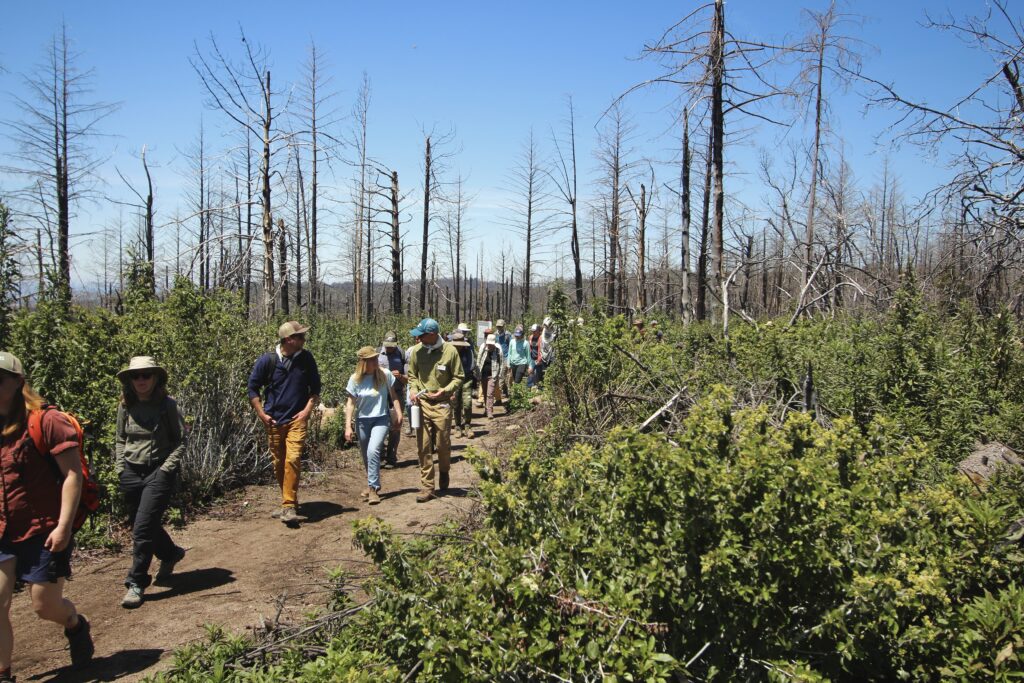
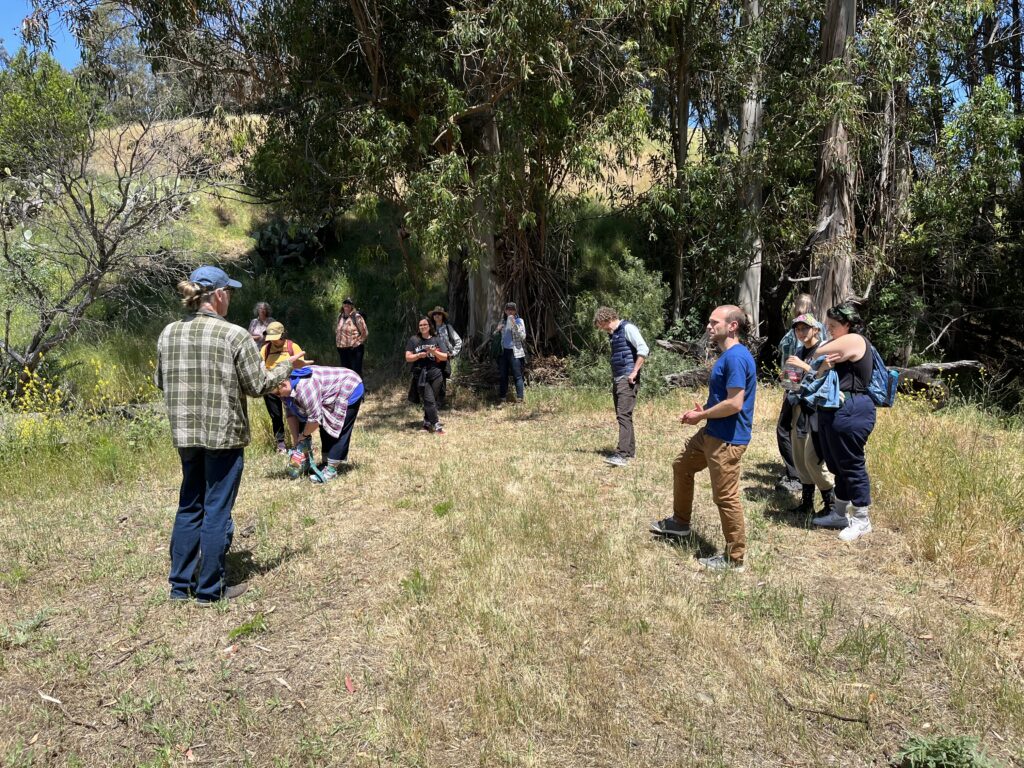
Resources
The Bay Area Greenprint
The Bay Area Greenprint is a tool that reveals the multiple benefits of natural and agricultural lands, empowering users to inform land use and infrastructure decisions with better data. The Bay Area Greenprint identifies, maps, and measures the values that nature contributes to the Bay Area ecosystem, the economy, and local and regional communities.
The Bay Area Greenprint is a collaboration of The Nature Conservancy, TOGETHER Bay Area, American Farmland Trust, Greenbelt Alliance, and GreenInfo Network. Funding provided by the S.D. Bechtel, Jr. Foundation, the Metropolitan Transportation Commission, and the Stanford University’s Natural Capital Project.

